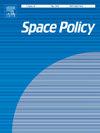The space resources fund: A solution to the space resources benefit sharing dilemma?
IF 1.9
4区 社会学
Q2 INTERNATIONAL RELATIONS
引用次数: 0
Abstract
This article investigates the use of a bespoke fund, the Space Resources Fund (SRF), to facilitate monetary benefit sharing from commercial space resource utilisation (SRU) and at the same time provide a source of funding for a developing space resource industry. The study investigates the possible objectives such a fund could have and compares these to range of terrestrial fund types that could have similar objectives. We find that there is no one fund type that could meet the possible objectives for a SRF, however, by combining several fund types, it is possible to construct a dedicated fund that meets the objectives initially developed. The study proposes a fund with the Double Bottom Line of both generating monetary benefits from commercial SRU and providing investment capital to an industry targeting SRU. The study also proposes a possible strategy, structure, funding mechanism and benefit distribution mechanism for the SRF and undertakes high level financial modelling to illustrate the wealth creation potential of such a fund. Further, we discuss the advantages and disadvantages of the approach proposed in this study compared to the use of a royalty mechanism for monetary benefit sharing, should monetary benefit sharing ultimately be proposed, by the UN Committee On the Peaceful Uses of Outer Space (COPUOS) for example. This work builds on previous work that reviews the ongoing debate concerning benefit sharing from commercial SRU and explores the use of royalties for such monetary benefit sharing in the context of commercial lunar ice mining. We conclude that a SRF as proposed here could help resolve the long standing dilemma of how to facilitate monetary benefit sharing from commercial SRU without impacting the development of such an industry.
空间资源基金:空间资源利益共享困境的解决之道?
本文调查了定制基金空间资源基金(SRF)的使用,以促进商业空间资源利用(SRU)的货币利益分享,同时为发展中的空间资源行业提供资金来源。这项研究调查了这种基金可能具有的目标,并将这些目标与可能具有类似目标的陆地基金类型进行了比较。我们发现,没有一种基金类型可以满足SRF的可能目标,然而,通过组合几种基金类型,可以构建一个满足最初制定目标的专用基金。该研究提出了一种基金,具有双重底线,既能从商业SRU中产生货币效益,又能为以SRU为目标的行业提供投资资本。该研究还提出了SRF可能的策略、结构、资助机制和利益分配机制,并进行了高层次的财务建模,以说明该基金的财富创造潜力。此外,我们讨论了本研究中提出的方法与使用权利金机制进行货币利益分享的优缺点,例如,如果货币利益分享最终由联合国和平利用外层空间委员会(COPUOS)提出。这项工作建立在先前工作的基础上,该工作回顾了正在进行的关于商业SRU利益分享的辩论,并探讨了在商业月球冰开采的背景下使用特许权使用费进行这种货币利益分享。我们的结论是,本文提出的SRF可以帮助解决长期存在的难题,即如何促进商业SRU的货币利益分享,同时又不影响该行业的发展。
本文章由计算机程序翻译,如有差异,请以英文原文为准。
求助全文
约1分钟内获得全文
求助全文
来源期刊

Space Policy
Multiple-
CiteScore
3.40
自引率
36.40%
发文量
40
期刊介绍:
Space Policy is an international, interdisciplinary journal which draws on the fields of international relations, economics, history, aerospace studies, security studies, development studies, political science and ethics to provide discussion and analysis of space activities in their political, economic, industrial, legal, cultural and social contexts. Alongside full-length papers, which are subject to a double-blind peer review system, the journal publishes opinion pieces, case studies and short reports and, in so doing, it aims to provide a forum for the exchange of ideas and opinions and a means by which authors can alert policy makers and international organizations to their views. Space Policy is also a journal of record, reproducing, in whole or part, official documents such as treaties, space agency plans or government reports relevant to the space community. Views expressed in the journal are not necessarily those of the editors or members of the editorial board.
 求助内容:
求助内容: 应助结果提醒方式:
应助结果提醒方式:


